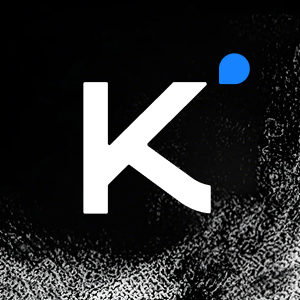Fabric.js 自定义类属性与方法扩展指南
2025-05-05 07:47:59作者:农烁颖Land
Fabric.js 作为一款功能强大的 Canvas 库,提供了灵活的扩展机制,允许开发者向内置类添加自定义属性和方法。本文将详细介绍如何在 Fabric.js 中实现这一功能。
类型声明扩展
在 TypeScript 项目中,首先需要为自定义属性和方法声明类型。通过模块声明合并,可以扩展 Fabric.js 的类型定义:
declare module "fabric" {
interface Rect {
customProperty: string;
getCustomText(): string;
}
interface Text {
customProperty: string;
getCustomText(): string;
}
}
原型方法实现
声明类型后,需要在原型上实现这些方法:
Rect.prototype.getCustomText = function() {
return this.customProperty || 'default';
}
Text.prototype.getCustomText = function() {
return this.text || 'default';
}
默认值设置
为自定义属性设置默认值有两种方式:
- 构造函数初始化:
fabric.Rect.prototype.initialize = (function(original) {
return function(...args: any[]) {
original.apply(this, args);
this.customProperty = 'initial value';
return this;
};
})(fabric.Rect.prototype.initialize);
- 类级别默认值:
fabric.Rect.prototype.customProperty = 'default value';
实际应用示例
const rect = new fabric.Rect({
width: 100,
height: 100,
customProperty: '自定义值' // 设置自定义属性
});
console.log(rect.getCustomText()); // 输出自定义值
注意事项
- 类型声明和实现必须保持一致
- 修改原型会影响所有实例
- 在 Angular 等框架中使用时,确保类型声明在模块加载前完成
- 自定义属性不会自动参与序列化/反序列化
通过以上方法,开发者可以灵活扩展 Fabric.js 的功能,满足各种定制化需求。
登录后查看全文
热门项目推荐
相关项目推荐
 GLM-5智谱 AI 正式发布 GLM-5,旨在应对复杂系统工程和长时域智能体任务。Jinja00
GLM-5智谱 AI 正式发布 GLM-5,旨在应对复杂系统工程和长时域智能体任务。Jinja00 GLM-5-w4a8GLM-5-w4a8基于混合专家架构,专为复杂系统工程与长周期智能体任务设计。支持单/多节点部署,适配Atlas 800T A3,采用w4a8量化技术,结合vLLM推理优化,高效平衡性能与精度,助力智能应用开发Jinja00
GLM-5-w4a8GLM-5-w4a8基于混合专家架构,专为复杂系统工程与长周期智能体任务设计。支持单/多节点部署,适配Atlas 800T A3,采用w4a8量化技术,结合vLLM推理优化,高效平衡性能与精度,助力智能应用开发Jinja00- QQwen3.5-397B-A17BQwen3.5 实现了重大飞跃,整合了多模态学习、架构效率、强化学习规模以及全球可访问性等方面的突破性进展,旨在为开发者和企业赋予前所未有的能力与效率。Jinja00
 Kimi-K2.5Kimi K2.5 是一款开源的原生多模态智能体模型,它在 Kimi-K2-Base 的基础上,通过对约 15 万亿混合视觉和文本 tokens 进行持续预训练构建而成。该模型将视觉与语言理解、高级智能体能力、即时模式与思考模式,以及对话式与智能体范式无缝融合。Python00
Kimi-K2.5Kimi K2.5 是一款开源的原生多模态智能体模型,它在 Kimi-K2-Base 的基础上,通过对约 15 万亿混合视觉和文本 tokens 进行持续预训练构建而成。该模型将视觉与语言理解、高级智能体能力、即时模式与思考模式,以及对话式与智能体范式无缝融合。Python00 MiniMax-M2.5MiniMax-M2.5开源模型,经数十万复杂环境强化训练,在代码生成、工具调用、办公自动化等经济价值任务中表现卓越。SWE-Bench Verified得分80.2%,Multi-SWE-Bench达51.3%,BrowseComp获76.3%。推理速度比M2.1快37%,与Claude Opus 4.6相当,每小时仅需0.3-1美元,成本仅为同类模型1/10-1/20,为智能应用开发提供高效经济选择。【此简介由AI生成】Python00
MiniMax-M2.5MiniMax-M2.5开源模型,经数十万复杂环境强化训练,在代码生成、工具调用、办公自动化等经济价值任务中表现卓越。SWE-Bench Verified得分80.2%,Multi-SWE-Bench达51.3%,BrowseComp获76.3%。推理速度比M2.1快37%,与Claude Opus 4.6相当,每小时仅需0.3-1美元,成本仅为同类模型1/10-1/20,为智能应用开发提供高效经济选择。【此简介由AI生成】Python00 ruoyi-plus-soybeanRuoYi-Plus-Soybean 是一个现代化的企业级多租户管理系统,它结合了 RuoYi-Vue-Plus 的强大后端功能和 Soybean Admin 的现代化前端特性,为开发者提供了完整的企业管理解决方案。Vue06
ruoyi-plus-soybeanRuoYi-Plus-Soybean 是一个现代化的企业级多租户管理系统,它结合了 RuoYi-Vue-Plus 的强大后端功能和 Soybean Admin 的现代化前端特性,为开发者提供了完整的企业管理解决方案。Vue06- RRing-2.5-1TRing-2.5-1T:全球首个基于混合线性注意力架构的开源万亿参数思考模型。Python00
 Qwen3.5Qwen3.5 昇腾 vLLM 部署教程。Qwen3.5 是 Qwen 系列最新的旗舰多模态模型,采用 MoE(混合专家)架构,在保持强大模型能力的同时显著降低了推理成本。00
Qwen3.5Qwen3.5 昇腾 vLLM 部署教程。Qwen3.5 是 Qwen 系列最新的旗舰多模态模型,采用 MoE(混合专家)架构,在保持强大模型能力的同时显著降低了推理成本。00
热门内容推荐
最新内容推荐
Degrees of Lewdity中文汉化终极指南:零基础玩家必看的完整教程Unity游戏翻译神器:XUnity Auto Translator 完整使用指南PythonWin7终极指南:在Windows 7上轻松安装Python 3.9+终极macOS键盘定制指南:用Karabiner-Elements提升10倍效率Pandas数据分析实战指南:从零基础到数据处理高手 Qwen3-235B-FP8震撼升级:256K上下文+22B激活参数7步搞定机械键盘PCB设计:从零开始打造你的专属键盘终极WeMod专业版解锁指南:3步免费获取完整高级功能DeepSeek-R1-Distill-Qwen-32B技术揭秘:小模型如何实现大模型性能突破音频修复终极指南:让每一段受损声音重获新生
项目优选
收起
deepin linux kernel
C
27
11
OpenHarmony documentation | OpenHarmony开发者文档
Dockerfile
570
3.85 K
Ascend Extension for PyTorch
Python
386
458
本项目是CANN提供的数学类基础计算算子库,实现网络在NPU上加速计算。
C++
894
680
openEuler内核是openEuler操作系统的核心,既是系统性能与稳定性的基石,也是连接处理器、设备与服务的桥梁。
C
354
212
昇腾LLM分布式训练框架
Python
120
146
暂无简介
Dart
805
198
Nop Platform 2.0是基于可逆计算理论实现的采用面向语言编程范式的新一代低代码开发平台,包含基于全新原理从零开始研发的GraphQL引擎、ORM引擎、工作流引擎、报表引擎、规则引擎、批处理引引擎等完整设计。nop-entropy是它的后端部分,采用java语言实现,可选择集成Spring框架或者Quarkus框架。中小企业可以免费商用
Java
12
1
🔥LeetCode solutions in any programming language | 多种编程语言实现 LeetCode、《剑指 Offer(第 2 版)》、《程序员面试金典(第 6 版)》题解
Java
68
20
🎉 (RuoYi)官方仓库 基于SpringBoot,Spring Security,JWT,Vue3 & Vite、Element Plus 的前后端分离权限管理系统
Vue
1.37 K
781